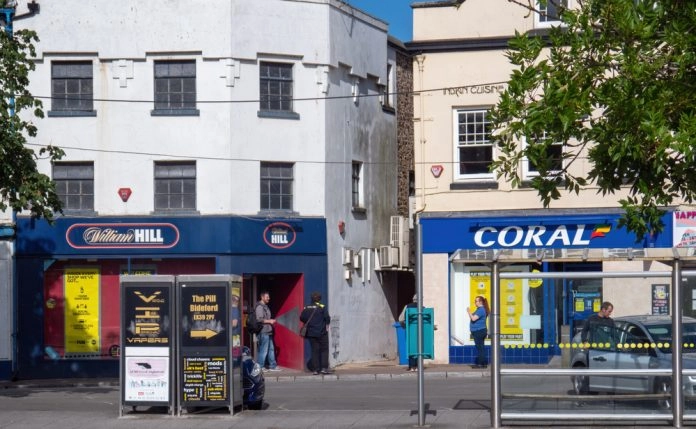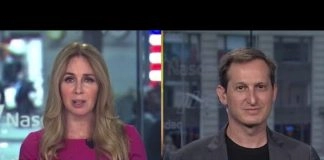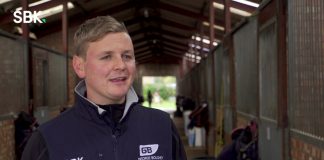Marking the 60th anniversary of the legalisation of betting shops, the BBC delved into its archived footage to dig up a report from the day the legislation came into force on 1 May 1961.
Overlaid with black-and-white footage, the reporter heads into James Keefe-Licensed Betting Office – ‘one of the 40’ shops ready to open on the first day.
“Up until last Monday, this was the only way a lucky punter could draw his winnings immediately after a race at the course itself, but on Monday, the first of the new shops opened their doors for business,” the reporter began.
Likening the activity of placing a wager to delivering a telegram, he continued: “Inside, everything had that fresh look, but in-keeping with the law, there was nothing to encourage me to bet. The only inducements were the lists of the runners at the day’s four meetings. Apart from these, it was like being in a small post office.
“Placing a bet was a simple operation. My selection, written on a slip of paper, and my money were handed over to a clerk behind the counter. The slip was time-stamped and so was my receipt. In fact, it was very much like handing in a telegram.
“There have been reports of a slow start to this over-the-counter betting but well over 100 bets were placed in this one shop in the first couple of hours. And, as you’d expect, everybody – well, nearly everybody – thought this new idea was a good one.”
Taking to the streets, the broadcaster quizzed the public on their opinion on the legalisation of betting shops, with all manner of people, from sailors to soldiers, offering their opinion in a set of vox pops.
Whilst one cynic said he thought ‘nothing’ of the decision and noted that he’d ‘sooner be on a street corner’, the majority of the public hailed the decision as a ‘great innovation’ and concurred that it should’ve only happened several years before.
One person hailed the move which would bring what was traditionally ‘surreptitious and undercover off the streets into a legal situation’ and another lauded the ability to bet ‘openly’ with ‘no fears or worries’.
Meanwhile, others took a neutral stance along the lines of, ‘everybody’s entitled to have a bet’ or ‘if people want to bet, they will’, whilst one member of the public pointed out the glaringly obvious: “As long as you bet on the right horse, you’re bound to get your money!”
Moving on to a different shop, owned by a family with ‘bookmaking in the blood’ the reporter added: “London’s East End, after all, has always had strong links with off-the-course betting and its people have always liked to bet.”
When asked how the legalisation of betting shops had affected his customer base, the bookmaker responded: “I’m getting old customers back that I haven’t seen for years because we were more or less driven off the street and we lost track of a lot of old clients but these last couple of days, they’ve been back.”
However, he added that he ‘personally wouldn’t like’ to see women flocking to betting shops, despite the lifting of the legislation.
Finally, the BBC paid a visit to the Chairman of the Racecourse Betting Control Board, Sir Dingwall Latham Bateso, for an ‘expert opinion’ on the matter, although he simply stated that he hoped betting would ‘settle down into a pattern’ now.
The reporter concluded: “With the flat racing season now well underway and the Lincoln behind us with the Derby and other big classics to come, we might find the season ending with a firm opinion on betting shops. At the moment, with public demand uncertain, their future is as open as the first stages of any big race.”





